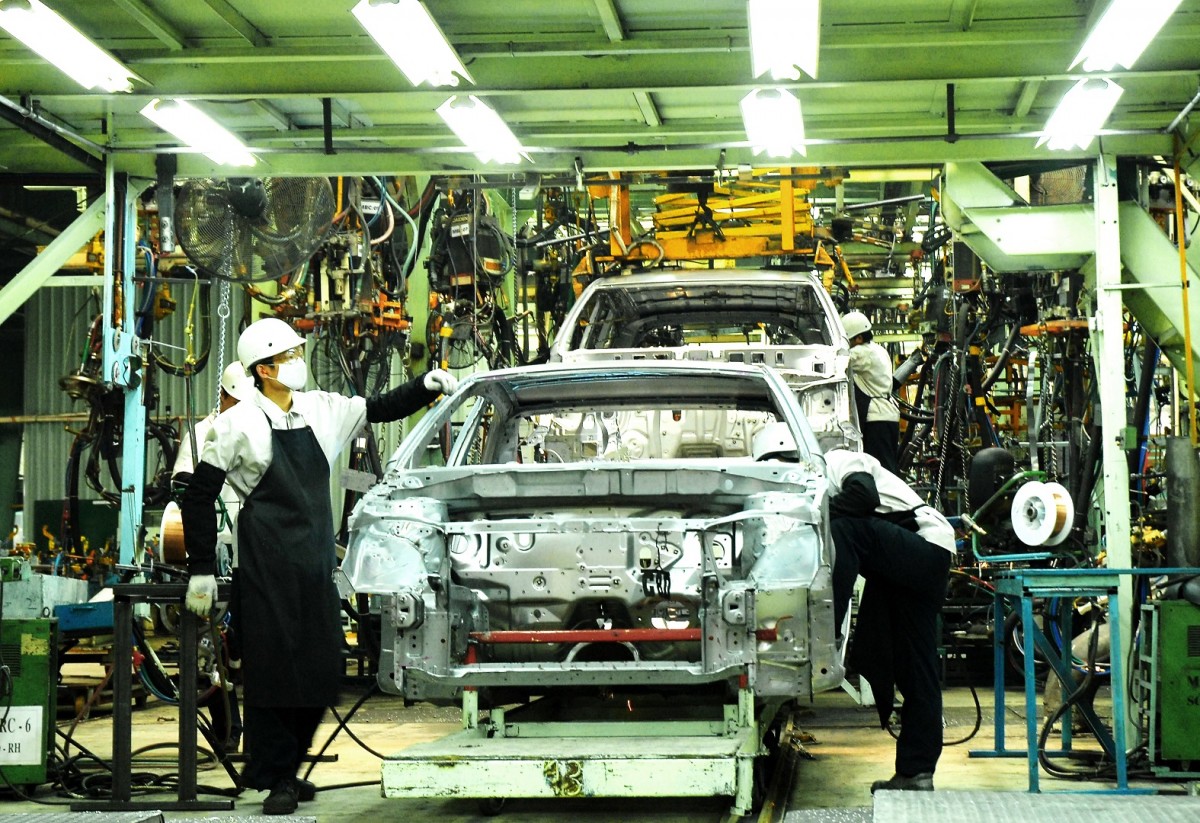Vietnam’s automotive industry seizes golden opportunities from global supply chain
 |
| In 2023, the Vietnamese auto market recorded sales of over 500,000 vehicles |
In 2023, according to data from the Vietnam Automobile Manufacturers’ Association (VAMA), approximately 7 out of 10 cars sold in the domestic market were assembled in Vietnam, and this ratio continues to rise in 2024. The localization rate of passenger cars has increased from 10-14 percent to 20-30 percent.
For instance, Truong Hai Auto Corporation (Thaco) has achieved a localization rate of over 60 percent for buses, 40 percent for trucks, and an average of 25 percent for passenger cars, with some passenger car models exceeding 40 percent. These figures meet the Regional Value Content (RVC) criteria to qualify for a zero percent preferential import tariff under the ASEAN Trade in Goods Agreement (ATIGA).
Hyundai Thanh Cong Vietnam (TC Motor) produces the Palisade model at its Ninh Binh Plant No.2 with an RVC rate exceeding 40 percent, qualifying for tariff preferences under the ASEAN Free Trade Area (AFTA). This provides a significant competitive advantage for TC Motor’s exports to international markets.
Similarly, VinFast, after a short period of investment in electric vehicle production, has established a strong foothold in Vietnam’s “green vehicle” market and expanded its reach to international markets.
It can be said that the Vietnamese automotive industry is currently experiencing robust growth with the participation of major brands, such as Toyota, Hyundai, VinFast, Ford, and Honda. In 2023, the Vietnamese auto market recorded sales of over 500,000 vehicles, maintaining steady growth over the years. However, low localization rate remains one of the industry’s biggest weaknesses.
To join the global supply chain, the Vietnamese automotive industry should take a comprehensive set of solutions. First and foremost, increasing the localization rate is a critical task. The Government should encourage domestic enterprises to invest in component manufacturing and facilitate technology transfer from international partners.
Specialized industrial parks for supporting industries need to be established to create a complete manufacturing ecosystem. At the same time, focus should be placed on training a high-quality workforce. Collaboration with international organizations and universities to train skilled engineers and technical workers will enhance the industry’s competitiveness.
In the long term, promoting the development of electric vehicles should be a top priority. Developing tax incentive policies and providing financial support for electric vehicle manufacturers and charging stations is essential to align with the global green transition trend.
Vietnam also needs to strengthen trade promotion and international cooperation to expand the export market for cars and components. Leveraging free trade agreements, such as the EU-Vietnam Free Trade Agreement (EVFTA) and the Comprehensive and Progressive Agreement for Trans-Pacific Partnership (CPTPP), will help the automotive supporting industry access discerning markets like Europe and Japan.
With a strong determination to promote the development of the automotive industry, the Government in recent years has issued specific policies to support production in this sector, including preferential import tax rates for components and parts used in domestic automobile manufacturing and assembly, and reduced registration fees for domestically assembled and manufactured vehicles.
Vietnam’s industrial sector is not yet strong compared to neighboring countries. However, with a market of 100 million consumers, rising per capita income, and increasing demand for personal vehicles, Vietnam still attracts car manufacturers.
In addition to the market’s growth potential, Vietnam currently has major domestic manufacturing and assembly enterprises, such as Thaco and VinFast, which dominate sales. These companies are believed to have stronger incentives to develop the supporting industries compared to foreign firms that already had a complete ecosystem before investing in Vietnam.
In addition, it is worth noting that Vietnam’s automotive industry is becoming increasingly attractive to foreign investors, with car manufacturers now willing to build production plants in Vietnam rather than merely importing vehicles for sale as they did in the past. For instance, last year, TC Motor and Skoda Auto signed a strategic cooperation agreement. The two companies plan to establish a factory to manufacture Skoda vehicles in Quang Ninh Province, where TC Motor’s supporting industry facilities are located.
Recently, a prominent vehicle distribution company in Vietnam, Tasco Joint Stock Company, and Geely Auto Group officially signed a joint venture agreement to assemble and distribute automobiles in Vietnam. The two companies will also collaborate to attract other investors to complete the supply chain for components and parts, conduct research activities, and provide workforce training at the Thai Binh Economic Zone.
Such agreements are expected to create thousands of jobs for local residents, promote technology transfer, and develop the domestic supply chain. As a result, Vietnam’s automotive industry is anticipated to have opportunities for transformation, growth, and stronger localization efforts.
Article URL: https://ven.congthuong.vn/vietnams-automotive-industry-seizes-golden-opportunities-from-global-supply-chain-55418.html
Print ArticleCopyrights of Vietnam Economic News, All rights reserved VEN.VN | VEN.ORG.VN
